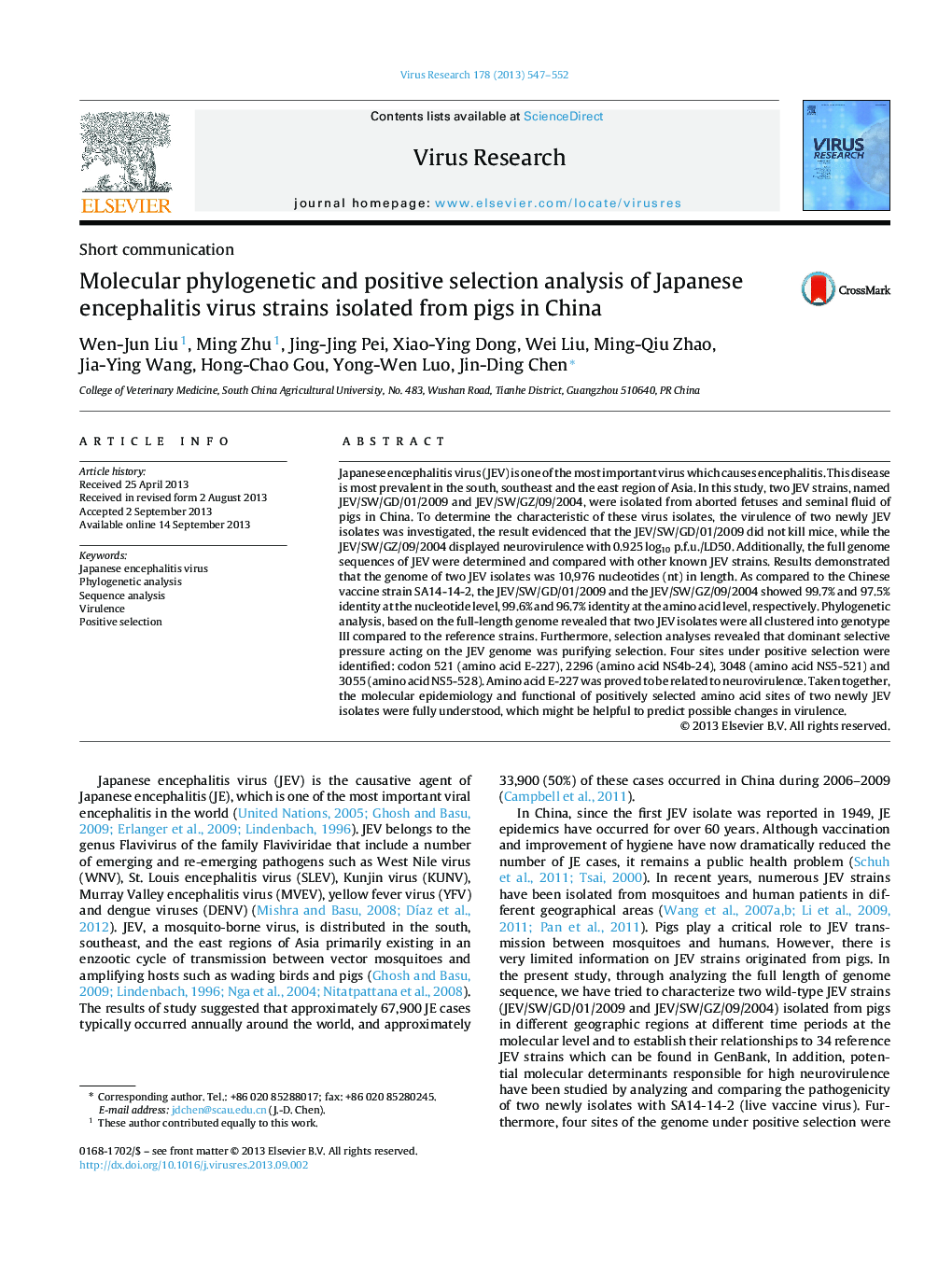| Article ID | Journal | Published Year | Pages | File Type |
|---|---|---|---|---|
| 6142773 | Virus Research | 2013 | 6 Pages |
Abstract
Japanese encephalitis virus (JEV) is one of the most important virus which causes encephalitis. This disease is most prevalent in the south, southeast and the east region of Asia. In this study, two JEV strains, named JEV/SW/GD/01/2009 and JEV/SW/GZ/09/2004, were isolated from aborted fetuses and seminal fluid of pigs in China. To determine the characteristic of these virus isolates, the virulence of two newly JEV isolates was investigated, the result evidenced that the JEV/SW/GD/01/2009 did not kill mice, while the JEV/SW/GZ/09/2004 displayed neurovirulence with 0.925Â log10 p.f.u./LD50. Additionally, the full genome sequences of JEV were determined and compared with other known JEV strains. Results demonstrated that the genome of two JEV isolates was 10,976 nucleotides (nt) in length. As compared to the Chinese vaccine strain SA14-14-2, the JEV/SW/GD/01/2009 and the JEV/SW/GZ/09/2004 showed 99.7% and 97.5% identity at the nucleotide level, 99.6% and 96.7% identity at the amino acid level, respectively. Phylogenetic analysis, based on the full-length genome revealed that two JEV isolates were all clustered into genotype III compared to the reference strains. Furthermore, selection analyses revealed that dominant selective pressure acting on the JEV genome was purifying selection. Four sites under positive selection were identified: codon 521 (amino acid E-227), 2296 (amino acid NS4b-24), 3048 (amino acid NS5-521) and 3055 (amino acid NS5-528). Amino acid E-227 was proved to be related to neurovirulence. Taken together, the molecular epidemiology and functional of positively selected amino acid sites of two newly JEV isolates were fully understood, which might be helpful to predict possible changes in virulence.
Keywords
Related Topics
Life Sciences
Immunology and Microbiology
Virology
Authors
Wen-Jun Liu, Ming Zhu, Jing-Jing Pei, Xiao-Ying Dong, Wei Liu, Ming-Qiu Zhao, Jia-Ying Wang, Hong-Chao Gou, Yong-Wen Luo, Jin-Ding Chen,
